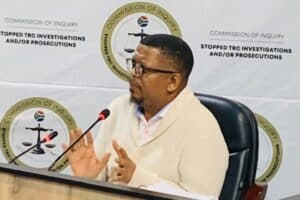United Democratic Front (UDF) bounces back as voice of disgruntled people.

The United Democratic Front (UDF), a mass movement that fought for democracy and justice during the apartheid era, is officially back.
But it assures everyone that its return is not to contest power, but to be the voice of the people.
UDF won’t contest elections
Now a civic movement, the UDF interim leadership said it won’t contest elections or serve any party-political interest. Instead, it will “reignite a unifying, people-driven movement for social transformation in South Africa”.
ALSO READ: Return of United Democratic Front in change-making meeting
Some ANC members, disgruntled by instability within the party, had been calling on the UDF to be revived to contest elections so they could find a political home. But the renewed UDF preferred not to contest elections in favour of a non-partisan role.
Anniversary celebration to honour stalwart
As part of its rebuilding in the run-up to its 43rd anniversary on 20 August, the UDF plans to honour “a towering yet often overlooked figure” in South Africa’s history, Gogo Maria Mkhaeji Chauke, the country’s first known solitary confinement detainee. She turns 100 on 1 May.
The stalwart’s centenary celebration will be held at Majakaneng in Marikana in North West.
The event will be addressed by UDF stalwart and cofounder, the cleric Allan Boesak, who will deliver a special sermon. Other dignitaries expected include former president Thabo Mbeki, the prime minister of the Ba-Pedi Traditional Authority, Ngoako Ramatlhodi, and labour and civil society leaders.
UDF national convenor, Jo Mboweni said: “This centenary celebration is not only a tribute to her life and legacy, but also a powerful symbol of the resilience of working-class women, freedom fighters and ordinary people who sacrificed for the dream of a just society.”
ALSO READ: ‘New’ UDF to be reborn, debate about anti-apartheid body contesting elections
He said the event would also honour the memory of the Marikana mineworkers, who paid the ultimate price for demanding a living wage when they were shot by police in August 2012.
Mboweni said the UDF was back as a non-partisan civic movement that represents the interests of the people.
“As the country faces unprecedented levels of division, inequality and moral drift, the return of the UDF is a clarion call to all South Africans – across race, class, gender, generation, and geography – to come together and reclaim the promise of 1994.”
Support Local Journalism
Add The Citizen as a Preferred Source on Google and follow us on Google News to see more of our trusted reporting in Google News and Top Stories.








